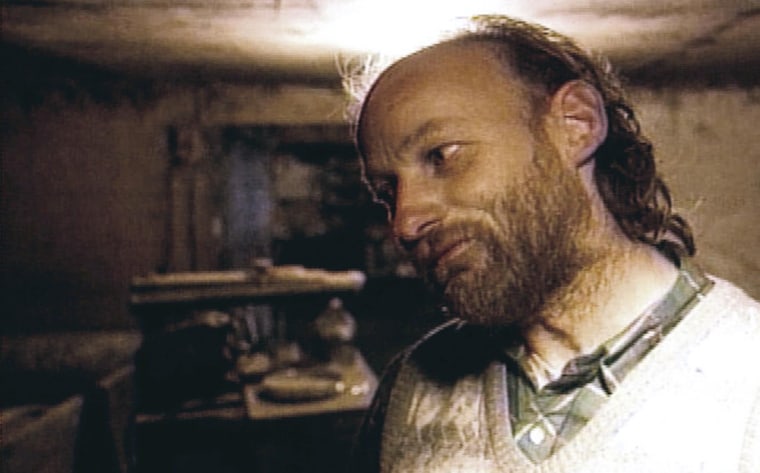An accused serial killer allegedly confessed to killing 49 women and intended to murder one more to make it an even 50, a prosecutor told jurors Monday during opening arguments of his trial.
Robert William Pickton has been charged with 26 counts of first-degree murder. He has pleaded not guilty to the first six counts in what is expected to be the most macabre and lengthy murder trial in Canadian history.
The 56-year-old pig farmer is charged with murdering the women, most of whom vanished from Vancouver's impoverished Downtown Eastside neighborhood in the 1990s.
The first trial covers the murders of Sereena Abotsway, Mona Wilson, Andrea Joesbury, Brenda Wolfe, Georgina Papin and Marnie Frey, and is expected to last a year.
Hundreds of people began lining up before dawn outside the small courthouse in the Vancouver suburb of New Westminster, vying for the 50 seats in the courtroom.
‘As bad as a horror movie’
A judge warned jurors to expect testimony "as bad as a horror movie" during the trial, and some of those shocking details came immediately.
Prosecutor Derrill Prevett said the government would prove that Pickton murdered the six, cut up their remains, and disposed of them. He told the jury that as a successful pig farmer, Pickton had the expertise, the equipment and the means to dispose of them.
When police first went to the farm to investigate in 2002, they found two skulls in a bucket in a freezer in Pickton's mobile home. DNA tests would later identify them as those of Abotsway and Joesbury.
"The heads of the individuals had been cut in two, vertically," Prevett said. "With the skulls were left and right hands and the front parts of the left and right feet."
He said both skulls had wounds caused by 22-caliber bullets. He said investigators found a Smith & Wesson rifle in the laundry room of Pickton's home.
Jurors sat in rapt attention, but the initial details caused some relatives of the victims to cry and leave the courtroom.
British Columbia Supreme Court Justice James Williams, who is presiding, ruled that the other charges will be heard in a later trial so as not to overburden the jury.
Some reporters get counseling
Evidence presented in more than a year of preliminary hearings, which has been under a publication ban, has been so gruesome that some reporters have sought psychological counseling.
Under the ban, details of the case have remained off limits to the media. Williams ruled earlier this week, however, that the ban on courtroom testimony would be lifted on Monday because neither the defense nor prosecution has objected.
If found guilty of more than 14 charges, Pickton would become the worst convicted killer in Canadian history, after Marc Lepine who gunned down 14 women at the Ecole Polytechnic in Montreal in 1989 before shooting himself.
It is believed that Pickton, who was arrested in February 2002, lured women to his family's 17-acre pig farm outside Vancouver in Port Coquitlam.
Sarah de Vries is among the women in the second set of murder charges against Pickton. A 1995 entry in her diary revealed the prostitute was aware of the dangers she faced working the streets of Downtown Eastside.
"Am I next?" she wrote. "Is he watching me now? Is he stalking me like a predator and his prey? Waiting, waiting for some perfect spot, time or my stupid mistake."
$61 million search
After Pickton was arrested and the first traces of DNA of some missing women were allegedly found on the farm, the buildings were razed and the province spent an estimated $61 million to sift through acres of soil at the farm.
Health officials then issued a tainted-meat advisory to neighbors who may have bought pork from the Pickton farm, concerned the meat may have contained human remains.
It was not the first time Pickton has appeared before a judge. He was charged with attempted murder and unlawful confinement in 1997 in the case of sex worker Wendy Lynn Eistetter. She claimed she had been handcuffed and attacked at the farm, but Pickton countered he acted in self-defense and for reasons that remain unclear, the charges were dropped.
The prosecution is expected to call about 240 witnesses.
Bulletproof box
Pickton sat for pretrial hearings in a specially built defendant's box surrounded by bulletproof glass. Clean-shaven with a bald crown and shoulder-length hair, he has occasionally chuckled to himself or scribbled in a notebook.
The Royal Canadian Mounted Police and Vancouver police have come under intense criticism by community activists and advocates for sex trade workers who claim authorities were slow to search for the missing women. Authorities countered that their resources were limited and the magnitude of the case overwhelming.
A police task force says it has located at least 102 women who were believed to be missing. Another 67 women remain on the list, as well as three unidentified DNA profiles from the Pickton farm.
Frey's mother, Lynn, was lined up with other relatives outside the courthouse early Monday, hoping to get one of the 35 seats reserved for family members of the victims.
"It's been a long haul," she told The Associated Press. Her daughter was 25 when she disappeared from the Downtown Eastside neighborhood in August 1997. "I need answers, then hopefully I can carry on with my journey and my life, and let Marnie be at rest."
